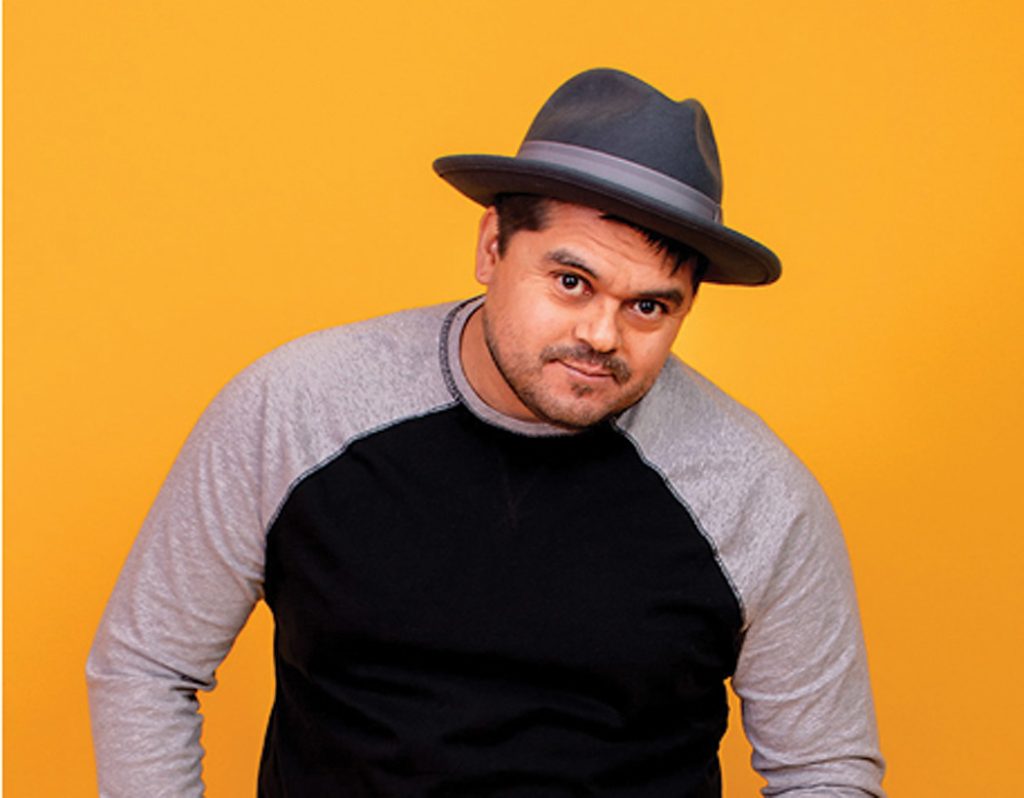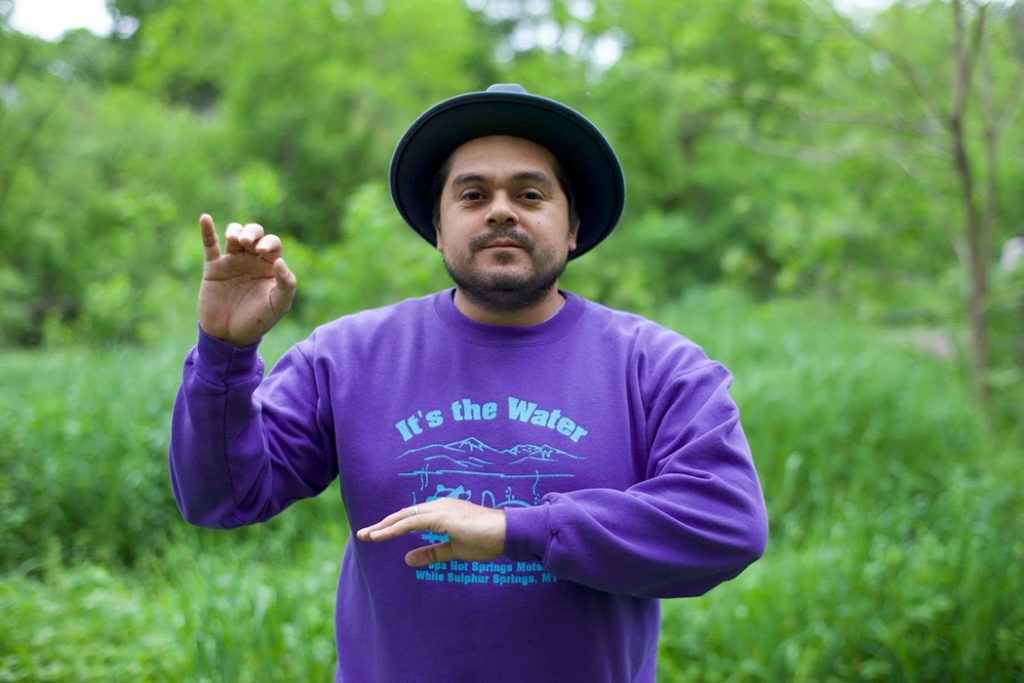
Listen, I’m just going to be straight with you. We Heard It When We Were Young by Chuy Renteria is easily the best book I’ve read in 2021. It’s easily one of the most heartrending memoirs I’ve ever read. And it’s easily the most important reframing of what it means to be an Iowan that I have ever come across.
I have to be up front about a few other things, too. Chuy and I met when he joined the staff of Hancher Auditorium late in what I think of as Hancher’s “post-flood period.” We were coworkers until very recently (he has a new gig) and we are friends. We have worked together, performed together as part of the spoken word troupe Truths to Tell, and played a fair amount of chess together (I won the first game and have never won again). I was the “disinterested third party” required when Chuy and his then-girlfriend Darcy got their wedding license. I was impatient when the pandemic meant I had to wait way too long to hold their baby.
I tell you all of this so that my biases are on the table. I also stand by what I wrote above.
In We Heard It When We Were Young (published by University of Iowa Press), Chuy recounts his childhood in West Liberty, the first minority-majority town in Iowa. It’s a book about life in small-town Iowa, the many shades and variations of racism and prejudice among those of Mexican, Laotian, and European descent; the meaning and responsibilities of manhood; family joy and strife, the ways in which an artistic practice can be a balm and a bane, and much more. Chuy writes with searing honesty in language that pops off the page as he code switches, considers, reconsiders, and challenges both the reader and himself.
Long and short: You should read this book.
Chuy and I recently talked about his book via Zoom.
Before I met Chuy, I didn’t know about the breakdancing scene in Iowa, but it turns out that West Liberty—and Chuy himself—was right at the center of it for quite some time. So I asked Chuy about the transition from thinking of himself as a dancer to thinking of himself as a writer.

“I’m still struggling with this, right?” he said. “The idea of letting go of pieces of my dancer identity—and I am hesitant to say that because I don’t think I have to give it up—but it runs parallel with me getting older, right? Me getting older and just feeling like I’m not the person that I used to be in terms of, like, I want to be the best and I’m gonna put everything to being the best dancer I can be. And now, maybe that’s not my priority. So it’s like letting my relationship with dance shift in a way to make it so I can kind of reconfigure the mode of expression to writing.”
And while I may have been thinking of Chuy as a dancer first and a writer second, the truth is that his love of and facility with language arose alongside his interest in dance as a high schooler. A fifth essay that was cut from the final book for space would have delved more deeply into this aspect of his life—an aspect hinted at in the book’s dedication.
“There was a piece centered on my high school days that would have explored my family’s relationship with spirituality and the other part of it was about writing. It was in high school when I had the two teachers that I acknowledge in the beginning of the book. Carol Clark and Stephanie Cromer were my literature teachers. I was dancing all the time in high school and just floundering in my academics, except for my literature and English classes.”
His teachers’ influence and belief in his writing (“Years ago you saw it in me, even before I saw it myself.”) fueled his belief that he could craft his own story in powerful and meaningful ways. So, too, did the varied and vibrant company he has always kept.
“And the other piece of it is I think my life has been interesting . . . in the sense of, like, who I was able to break bread with. . . . It’s a weird thing to be proud of, but I’m very proud of that. The fact that I can go to, like, Des Moines in what some would consider, like, really bad neighborhoods and go to a cookout and chill . . . and I can go to, like, a fancy-schmancy campus literature event, right?”
Chuy is well aware that We Heard It When We Were Young is more than his personal story. It’s a story about real people in a real place who have had real experiences—both good and bad—that have shaped their lives.
“I’m writing this for people like me. I’m writing it for West Liberty. I’ve described it like it’s a love letter, but it’s like a love letter where the relationship went through some stuff, right? Like it’s not all hunky-dory . . . I just know that there was a part of me that said I’m gonna have to write this and, you know, so and so from West Liberty is going to have to read it and see themselves in it or at least see that I’m being real. I was holding myself accountable to it.”
In a real sense, Chuy was writing his way toward tentative answers to difficult—perhaps finally unanswerable—questions.
“It’s about going to the edge of something you’re not comfortable with, where I myself don’t know the answer. Did I have a good childhood or am I a good person? Is the goodness or the badness of a person the accumulation of what happened to them as they grew up? I’m still struggling with that.”
